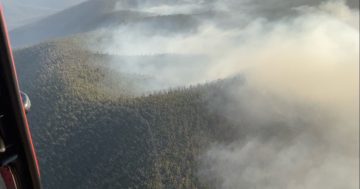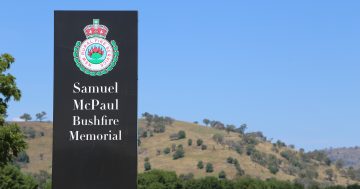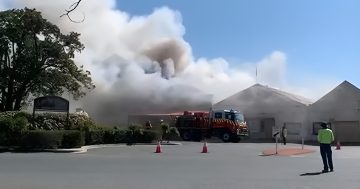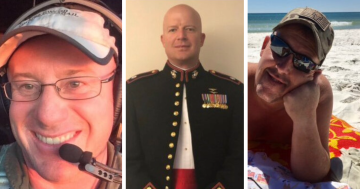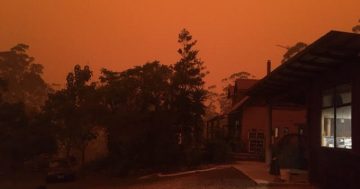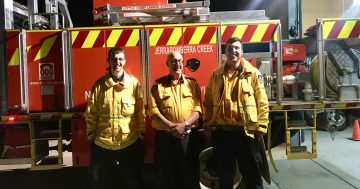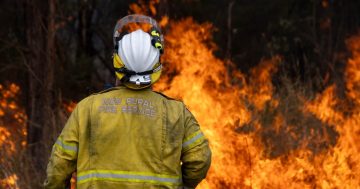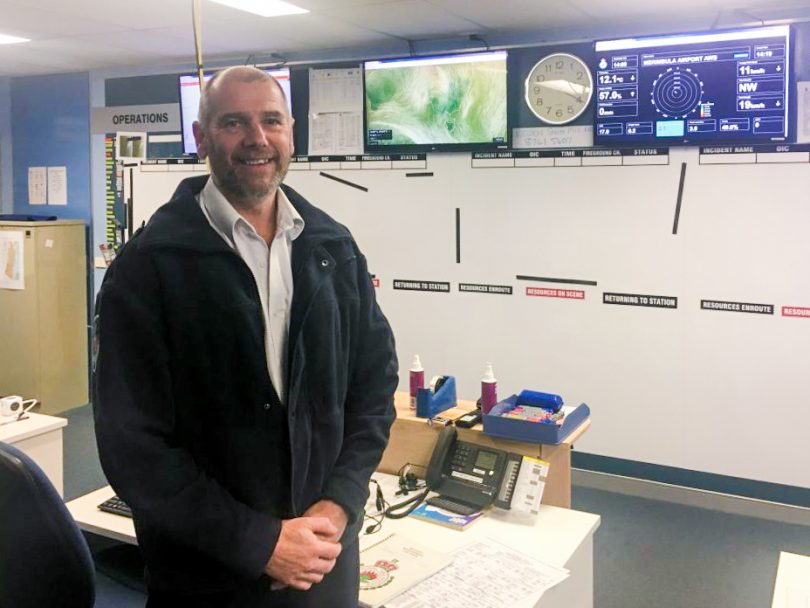
NSW Rural Fire Service’s Far South Coast community safety officer Marty Webster. Photo: File.
For many NSW South Coast residents, Marty Webster was the calm, compassionate voice on the airwaves, delivering crucial information to terrified people while the Black Summer bushfires raged all around.
As the NSW Rural Fire Service’s Far South Coast community safety officer, Marty became the voice and face of the NSW RFS in the region, providing timely advice and critical information during many months.
A pillar of strength, he worked with minimal time off for 122 days, making sure communities had the facts they needed to make life or death decisions.
Marty was working 11-day fortnights during the worst of it, and spending his ‘days off’ preparing his own farm, which was threatened by fire.
“You don’t realise the toll it is taking while you are doing it,” he recalls. “The adrenaline kicks in and it gets you up each morning. Even just after it finishes, the residual adrenaline keeps going. There’s a period of almost anticlimax when you are done and dusted.”
Marty says the reality of the bushfires that saw out 2019 and welcomed in 2020 were “beyond worst case scenario”.
“When we do training exercises, we come up with some of the worst scenarios we can think of,” he says. “Some people think we go too far.
“Well it happened – fires impacting zoos, things like that you couldn’t make up.”
But Marty’s contribution to the NSW RFS and the wider regional community runs far deeper than one horror fire season.
The 56-year-old Pambula Beach man has been a key figure in the organisation, building community resilience for the better part of 12 years. He has led the implementation of many Community Protection Plans, engagement strategies and risk mitigation programs, drawing on his background in environmental management and land use.
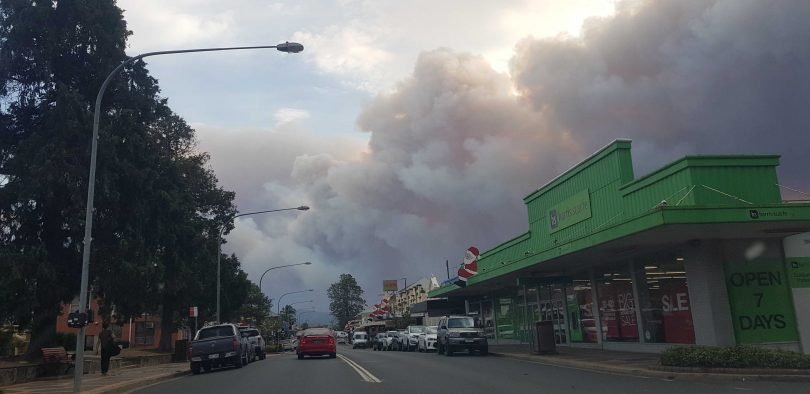
Moruya’s main street on 31 December, 2019, as the Black Summer bushfires raged. Photo: Karyn Starmer.
On Friday, 6 August, 2021, Marty finished up with the NSW RFS, making a career change that will see him stay in fire mitigation and in the Bega Valley, but no longer as a NSW RFS employee.
“I wouldn’t say that [the toll taken by the Black Summer bushfires] is the reason I’m leaving, but a few people encouraged me to look at things more broadly,” he says.
“Someone asked me whether I could cope with another year like that one. I said I reckon I could do it, but I would have been a shattered mess at the other end.”
Thankfully, last summer provided a relatively quiet fire season and Marty says the indications are good that the upcoming one will be the same.
However, what won’t change is Marty’s commitment to the NSW RFS in some capacity.
“It’s a real privilege to work with a volunteer organisation,” he says. “There something special about it.
“I want to ramp up my volunteer commitment – I just have to figure out where I can be of most value.”
In an email to members, the NSW RFS paid tribute to Marty.
“We will miss Marty’s intelligence, quick wit and steady hand,” it reads. “Marty’s commitment and care for members of the Rural Fire Service is second to none. He is always there and willing when someone needs him.
“We extend our best wishes to him and his family for the future.”
Marty, like everyone, is hoping that future will include fewer bushfires, and more time for other pursuits such as surfing and cycling. However, watching the trends around the world that seems hard to imagine.
“I feel we really have to listen to our scientists,” says Marty.
“Public opinion and lived experience is great and should be considered … [but] really what we have to work to is what the scientists are telling us.
“Some of what we need to do is not going to happen quickly so we need to be thinking ahead and listening to what they have to say.”







